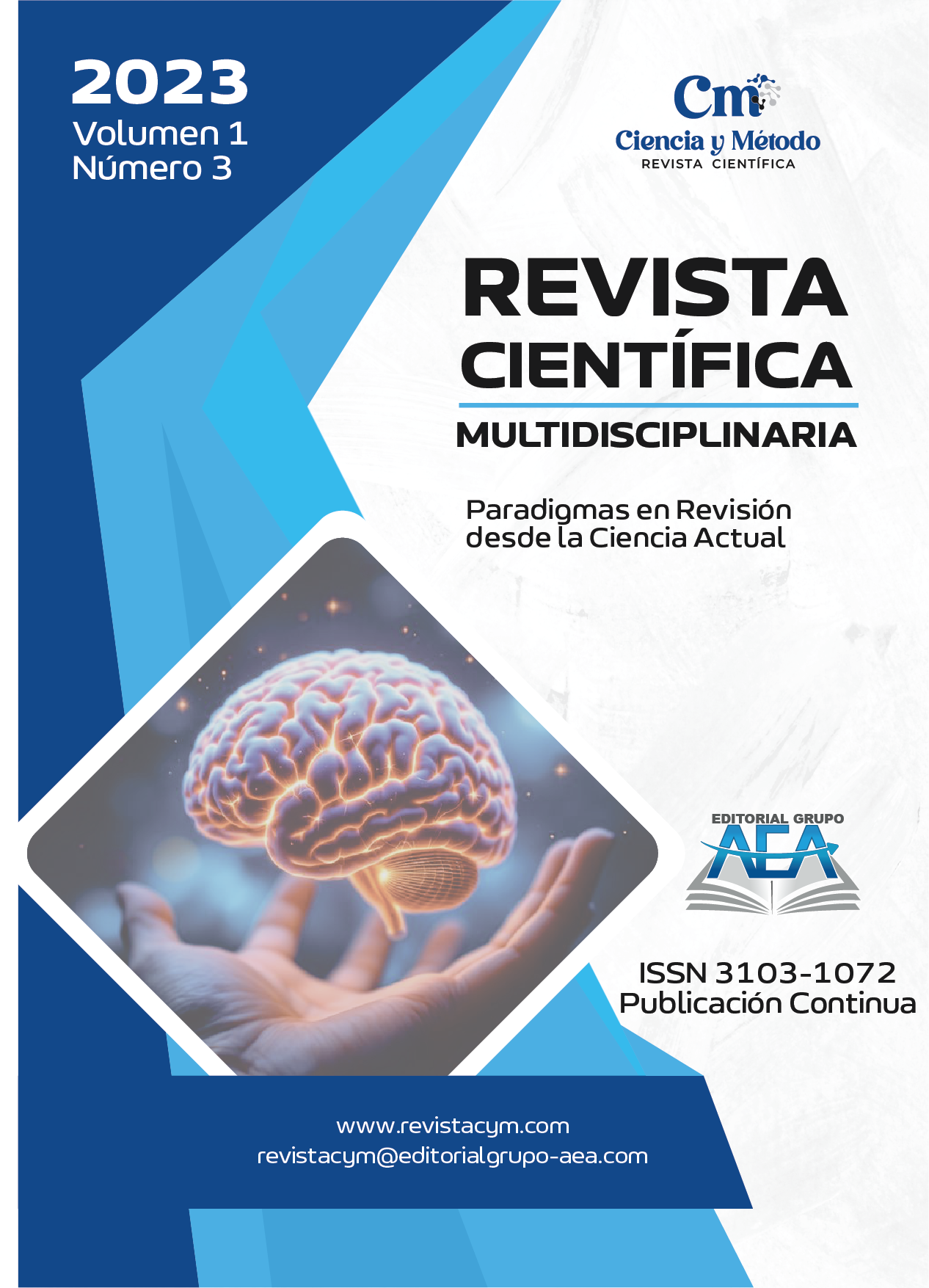Adaptation of auditing regulationds to emerging technological advances
Main Article Content
Abstract
The article addresses the urgent need to adapt auditing regulations to emerging technological advances such as artificial intelligence, blockchain and big data. Through a systematic review of indexed scientific literature, the authors identify a marked obsolescence in current regulations regarding the use of disruptive technologies, which generates regulatory, ethical and technical gaps that compromise data traceability, algorithmic transparency and the auditor's professional responsibility. Among the main findings are the lack of specific standards for digital technologies, the absence of ethical guidelines on algorithms and regulatory rigidity in the face of innovation. In response, flexible regulatory frameworks, algorithmic transparency requirements, traceability guidelines and alliances between regulators and technologists are proposed. These proposals seek to preserve the quality and legitimacy of auditing in the digital era, strengthening its capacity to respond to a complex and changing environment.
Downloads
Article Details
Section

This work is licensed under a Creative Commons Attribution-NonCommercial 4.0 International License.
How to Cite
References
Almenaba-Guerrero, Y. F., & Herrera-Sánchez, M. J. (2022). Diversidad e Inclusión en el Lugar de Trabajo: Prácticas en Ecuador Liderazgo y Cultura Organizacional. Revista Científica Zambos, 1(1), 69-85. https://doi.org/10.69484/rcz/v1/n1/22 DOI: https://doi.org/10.69484/rcz/v1/n1/22
Batini, C., Cappiello, C., Francalanci, C., & Maurino, A. (2009). Methodologies for data quality assessment and improvement. ACM Computing Surveys, 41(3), 1–52. https://doi.org/10.1145/1541880.1541883 DOI: https://doi.org/10.1145/1541880.1541883
Bhimani, A., & Willcocks, L. (2014). Digitisation, ‘Big Data’ and the transformation of accounting information. Accounting and Business Research, 44(4), 469–490. https://doi.org/10.1080/00014788.2014.910051 DOI: https://doi.org/10.1080/00014788.2014.910051
Bravo-Bravo, I. F., & Herrera-Sánchez, M. J. (2023). Tendencias Globales del Liderazgo Transformacional en Empresas Modernas. Horizon Nexus Journal, 1(2), 14-31. https://doi.org/10.70881/hnj/v1/n2/15 DOI: https://doi.org/10.70881/hnj/v1/n2/15
Caicedo-Basurto, R. L., & Casanova-Villalba, C. I. (2023). Impacto de las Normas Internacionales de Información Financiera (NIIF) en la Comparabilidad de los Estados Financieros a través de la Literatura Reciente. Horizon Nexus Journal, 1(2), 32-47. https://doi.org/10.70881/hnj/v1/n2/16 DOI: https://doi.org/10.70881/hnj/v1/n2/16
Casanova-Villalba, C. I., & Hurtado-Guevara, R. F. (2023). Auditoría fiscal y evasión tributaria mediante un enfoque sustentado en evidencia empírica reciente. Multidisciplinary Collaborative Journal, 1(1), 39-51. https://doi.org/10.70881/mcj/v1/n1/10 DOI: https://doi.org/10.70881/mcj/v1/n1/10
Choi, J. H., Hecht, G., & Tayler, W. B. (2020). Strategic value of predictive analytics in accounting and finance. Accounting, Organizations and Society, 82, 101104.
Davenport, T. H., & Bean, R. (2018). Big Companies Are Embracing Analytics, But Most Still Don’t Have a Data-Driven Culture. Harvard Business Review.
George, G., Osinga, E. C., Lavie, D., & Scott, B. A. (2016). Big Data and data science methods for management research. Academy of Management Journal, 59(5), 1493–1507. https://doi.org/10.5465/amj.2016.4005 DOI: https://doi.org/10.5465/amj.2016.4005
Ghasemaghaei, M. (2019). Does data analytics use improve firm decision making quality? The role of knowledge sharing and data analytics competency. Decision Support Systems, 120, 14–24. https://doi.org/10.1016/j.dss.2019.03.004 DOI: https://doi.org/10.1016/j.dss.2019.03.004
Kiron, D., Prentice, P. K., & Ferguson, R. B. (2014). The analytics mandate. MIT Sloan Management Review, 55(4), 1–25.
Kwon, O., Lee, N., & Shin, B. (2014). Data quality management, data usage experience and acquisition intention of big data analytics. International Journal of Information Management, 34(3), 387–394. https://doi.org/10.1016/j.ijinfomgt.2014.02.002 DOI: https://doi.org/10.1016/j.ijinfomgt.2014.02.002
Margherita, A. (2022). Human resources analytics: A systematization of research topics and directions for future research. Human Resource Management Review, 31(2), 100756. https://doi.org/10.1016/j.hrmr.2020.100795 DOI: https://doi.org/10.1016/j.hrmr.2020.100795
Mikalef, P., Krogstie, J., Pappas, I. O., & Giannakos, M. (2018). Investigating the effects of Big Data analytics capabilities on firm performance: The mediating role of dynamic capabilities. Information & Management, 55(8), 103187.
Mikalef, P., Pappas, I.O., Krogstie, J. & Giannakos, M. (2018). Big data analytics capabilities: a systematic literature review and research agenda. Inf Syst E-Bus Manage 16, 547–578. https://doi.org/10.1007/s10257-017-0362-y DOI: https://doi.org/10.1007/s10257-017-0362-y
Pezeshkan, A., Smith, A. D., Fainshmidt, S., & Murovec, N. (2020). Strategic foresight, innovation, and firm performance: An integrative framework. Journal of Business Research, 117, 1–15.
Ransbotham, S., Candelon, F., Kiron, D., LaFountain, B., & Khodabandeh, S. (2021). The Cultural Benefits of Artificial Intelligence in the Enterprise. MIT Sloan Management
Sadiq, S., Ormandjieva, O., & Gasevic, D. (2015). Data quality challenges and strategies in big data analytics. In Proceedings of the International Conference on Big Data and Smart Computing (pp. 199–206). IEEE.
Santander-Salmon, E. S., Herrera-Sánchez, M. J., & Bravo-Bravo, I. F. (2023). La importancia de la digitalización en la administración empresarial mediante un análisis bibliográfico actualizado. Multidisciplinary Collaborative Journal, 1(2), 39-51. https://doi.org/10.70881/mcj/v1/n2/15 DOI: https://doi.org/10.70881/mcj/v1/n2/15
Sharma, R., Mithas, S., & Kankanhalli, A. (2017). Transforming decision-making processes: a research agenda for understanding the impact of business analytics on organisations. European Journal of Information Systems, 23(4), 433–441. https://doi.org/10.1057/ejis.2014.17 DOI: https://doi.org/10.1057/ejis.2014.17
Sivarajah, U., Kamal, M. M., Irani, Z., & Weerakkody, V. (2017). Critical analysis of Big Data challenges and analytical methods. Journal of Business Research, 70, 263–286. https://doi.org/10.1016/j.jbusres.2016.08.001 DOI: https://doi.org/10.1016/j.jbusres.2016.08.001
Van den Heuvel, S., & Bondarouk, T. (2017). The rise (and fall?) of HR analytics: A study into the future application, value, structure, and system support. Journal of Organizational Effectiveness: People and Performance, 4(2), 157–178. https://doi.org/10.1108/JOEPP-03-2017-0022 DOI: https://doi.org/10.1108/JOEPP-03-2017-0022
Wamba, S. F., Akter, S., Edwards, A., Chopin, G., & Gnanzou, D. (2015). How ‘big data’ can make big impact: Findings from a systematic review and a longitudinal case study. International Journal of Production Economics, 165, 234–246. https://doi.org/10.1016/j.ijpe.2014.12.031 DOI: https://doi.org/10.1016/j.ijpe.2014.12.031





